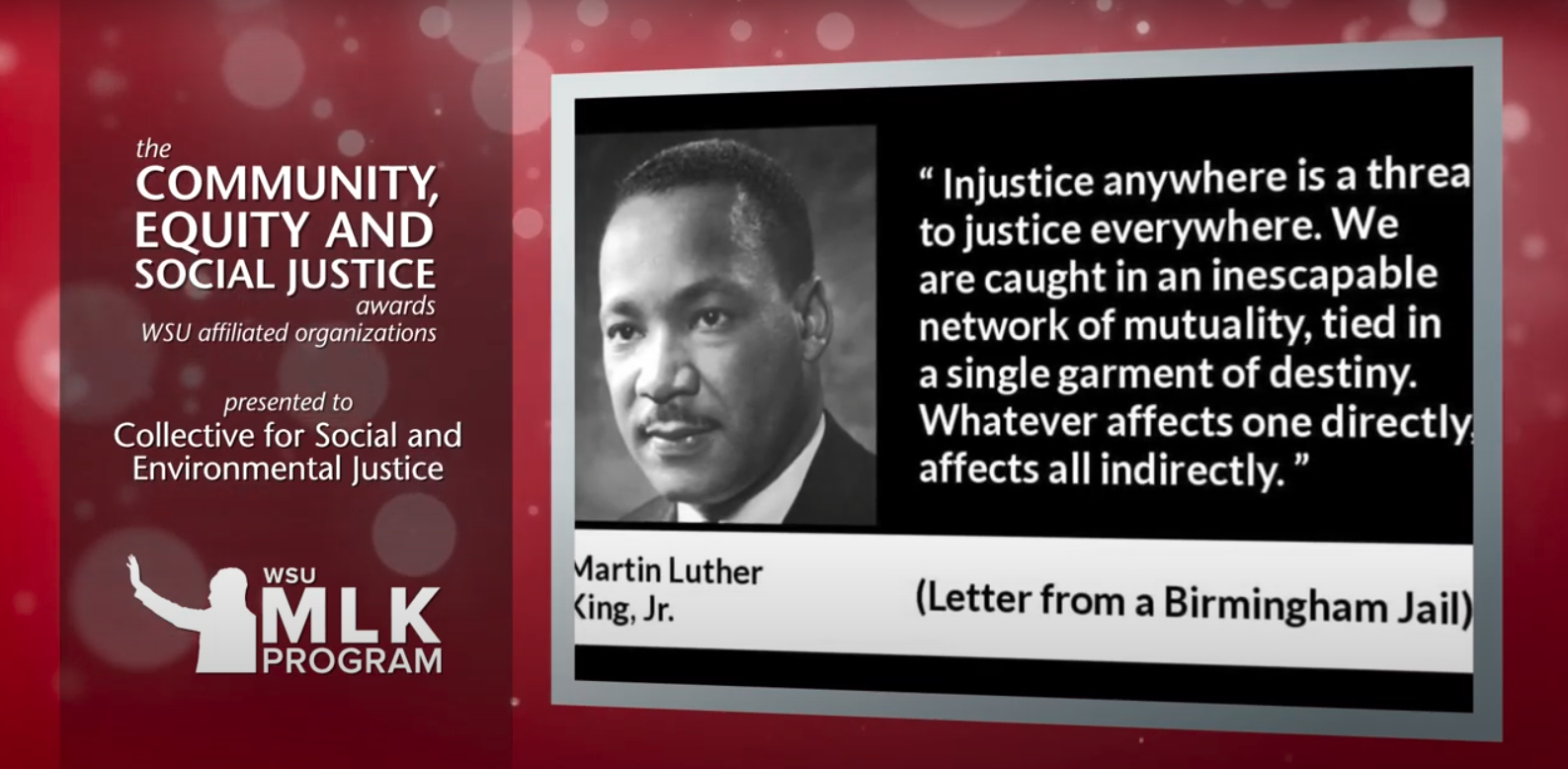Thanks to my wonderful and supportive colleagues, in February, I was announced as one of the winners for the 2021 MLK Distinguished Service Award for Community, Equity, and Social Justice (CESJ) at Washington State University. Winners are recognized for “[following] in Dr. King’s legacy” by promoting “human rights and social justice” through community service, inclusiveness, and education. The CESJ award, specifically, “recognizes the significant contribution, time and effort of Washington State University community members towards advancing an inclusive climate for excellence in activism, advocating, teaching, public service, and academic endeavors.” I share this honor with (Tumbleweird’s very own) Sara Quinn.
In Summer 2018, I piloted client-based projects in a 400-level technical and professional writing course. Students were assigned various workplace projects needed by businesses and organizations in the Tri-Cities area. The projects included: an operations manual, content for a website, an event planning guide, a grant writing guide, and software instructions. In teams, students spent six weeks researching, writing, formatting, and designing. In those six weeks, I learned the value of engaging with community partners and creating opportunities for hands-on learning.
When I taught the course again in the Fall, Sara volunteered to participate as the sole client for two classes. One of the projects Sara tasked the students with involved Tri-City Area Gaming (TAG). TAG uses gaming to build an inclusive community. Anyone who has grown up playing board games and card games with family and friends knows how games can bring people together. TAG hosts events, collaborates with educators, facilitates workshops, and organizes after-school and summer activities. All their efforts center around gameplay and design.
Sara asked students to rewrite and simplify gaming instructions for multiple card games, adult board games, and children’s games. She planned to translate the students’ instructions into Spanish and Russian for multilingual families. She provided all the board games, making it easy for students to review the traditional instructions by playing the games themselves; later, the groups reviewed each other’s simplified instructions through gameplay, as well.
The project was meaningful, educational, and fun. For both native and multilingual speakers, gameplay instructions can be inaccessible. Convoluted language delays gameplay as people struggle to read the instructions and figure out what to do; more so when children from multilingual/immigrant families, like myself, attempt to translate gaming instructions to parents. Often it’s easier to give up and not play at all. The students, aware of these challenges, simplified gaming instructions by eliminating complex language and unclear sentence structure, easing translation and allowing players to jump right into gameplay. Some of the students even took it one step further and translated their English instructions into Spanish.
The students also developed their research, writing, and presentation skills. Most of them were unfamiliar with the games and researched how-to-play YouTube videos and images they could use for their own instructions. They strengthened their understanding of writing for specific audiences by keeping in mind the games’ difficulty levels and recommended age groups. The students had the opportunity to showcase their work in a presentation prepared only for Sara and me. They also learned about alternative business philosophies that promote community and equality through educational means.
It was a fun project that motivated students to work on something that would not only benefit a nonprofit organization, but more importantly, benefit underrepresented groups in the community. In turn, I learned how collaborating with nonprofit organizations like TAG adds value to the learning experience and allows students to do community work that promotes inclusiveness and accessibility.
Vanessa Cozza is a Career-Track Associate Professor in English at Washington State University, Tri-Cities. She teaches writing and advanced rhetoric courses as well as supervises her department’s
internships.
Her current scholarship focuses on the value of implementing client-based projects into the classroom. In her classes, Vanessa creates opportunities for students to collaborate with local professionals, allowing a hands-on approach to learning and developing skills.
Originally from the east coast, Vanessa earned her Ph.D. in Rhetoric and Writing at Bowling Green State University, and then moved further west. Her favorite time of year is when she can ski Mt. Rainier and Mt. Baker with her husband and son.

